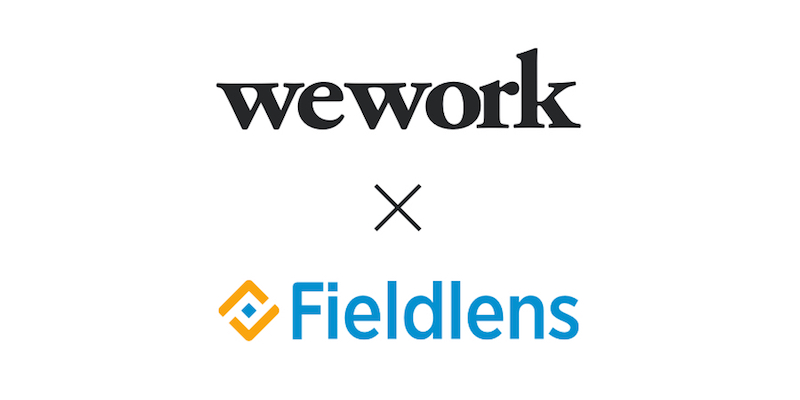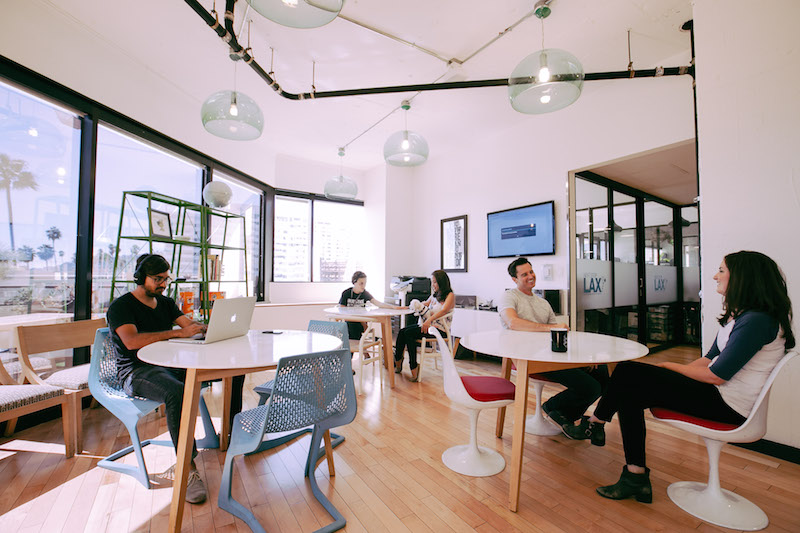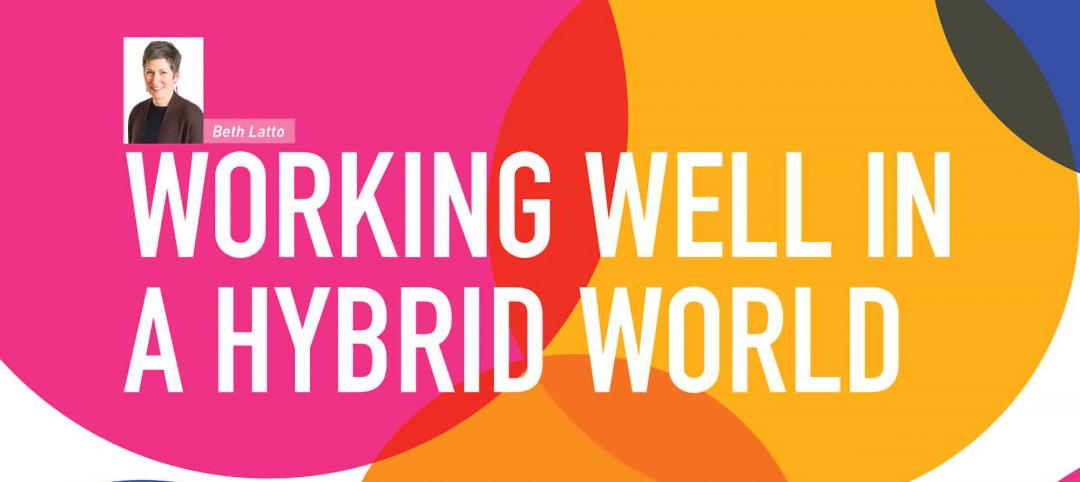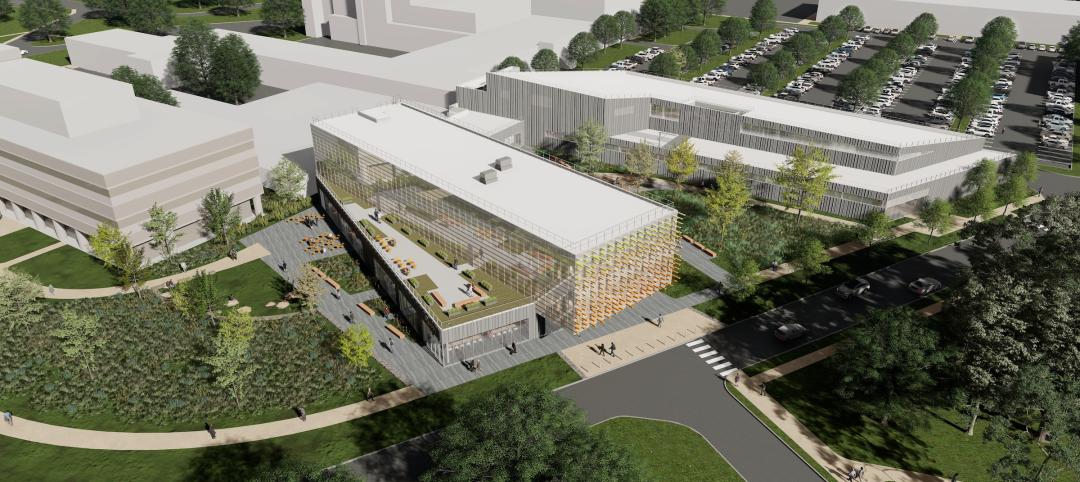WeWork, the New York-based urban workspace designer and redeveloper that’s one of the fastest-growing companies in the U.S., has acquired Fieldlens, a six-year-old producer of construction management applications that allow for more efficient on-site communications.
Most construction projects “are broken social networks,” says Doug Chambers, Fieldlens’ founder. His company’s app helps make a jobsite environment more like Facebook or a social feed, where everyone on site is communicating in real time, all the time.
An example Chambers gives is a project manager who is walking a site, and using the app on his smartphone to send observations, pictures, confirmations, and directives to other crew members. Chambers says that on one jobsite in Buffalo, N.Y., the Fieldlens app is facilitating 1,000 interactions per day, on average, among the 80 to 100 workers on site.
“Fieldlens lets people get back to work,” and not get bogged down on a lot of administrative and paperwork duties, says Chambers.
For the past two years, WeWork has been one of Fieldlens’ biggest customers. And its use has “ramped up pretty rapidly” over the past six months, says Chambers, as WeWork “has grown like crazy.”
Founded in 2010, WeWork currently has more than 120,000 members globally working out of 149 locations in 45 cities in 13 countries. WeWork so far has redeveloped more than 8 million sf of space to coworker offices. It is about to expand into India and Colombia.
In a recent blog, WeWork’s Chief Product Officer David Fano said the company is opening between five and 10 new locations a month. “And we’ve only begun to scratch the surface of global demand.” The company has also recently expanded into co-living redevelopment.
“WeWork is a train moving at 200 miles per hour,” says Aaron Fritsch, WeWork’s head of product systems and operations. “We’re a mission-driven company, and what we love about Fieldlens is how it’s focused on changing and improving the industry. It saw that there’s a better way that [project management] could be done.”

WeWork had been one of Fieldlens' biggest customers before it acquired the six-year-old company this month. Image: WeWork
Fano said that WeWork is “obsessed by the intersection of technology and the construction industry.” And among the things that Fieldlens’ app brings to the table, says Fristch, is a continuous feedback loop that bridges the communications gap that too often separates not only jobsite personnel, but also designers and facilities managers.
As a single company WeWork and Fieldlens will continue to develop and refine construction tools that are made available to the industry at large. “As part of WeWork, we’ll have more resources to continue to focus on our goal of making the work-lives of construction professionals more efficient,” says Chambers.
Related Stories
Sustainability | Jul 1, 2024
Amazon, JPMorgan Chase among companies collaborating with ILFI to advance carbon verification
Four companies (Amazon, JPMorgan Chase, JLL, and Prologis) are working with the International Living Future Institute to support development of new versions of Zero Carbon Certification.
Multifamily Housing | Jun 14, 2024
AEC inspections are the key to financially viable office to residential adaptive reuse projects
About a year ago our industry was abuzz with an idea that seemed like a one-shot miracle cure for both the shockingly high rate of office vacancies and the worsening housing shortage. The seemingly simple idea of converting empty office buildings to multifamily residential seemed like an easy and elegant solution. However, in the intervening months we’ve seen only a handful of these conversions, despite near universal enthusiasm for the concept.
Adaptive Reuse | Jun 13, 2024
4 ways to transform old buildings into modern assets
As cities grow, their office inventories remain largely stagnant. Yet despite changes to the market—including the impact of hybrid work—opportunities still exist. Enter: “Midlife Metamorphosis.”
Mass Timber | Jun 10, 2024
5 hidden benefits of mass timber design
Mass timber is a materials and design approach that holds immense potential to transform the future of the commercial building industry, as well as our environment.
Office Buildings | Jun 6, 2024
HOK presents neurodiversity research and design guidelines at SXSW 2024
Workplace experts share insights on designing inclusive spaces that cater to diverse sensory processing needs.
Office Buildings | Jun 3, 2024
Insights for working well in a hybrid world
GBBN Principal and Interior Designer Beth Latto, NCIDQ, LEED AP, ID+C, WELL AP, share a few takeaways, insights, and lessons learned from a recent Post Occupancy Evaluation of the firm's Cincinnati, Ohio, office.
MFPRO+ News | Jun 3, 2024
New York’s office to residential conversion program draws interest from 64 owners
New York City’s Office Conversion Accelerator Program has been contacted by the owners of 64 commercial buildings interested in converting their properties to residential use.
Products and Materials | May 31, 2024
Top building products for May 2024
BD+C Editors break down May's top 15 building products, from Durat and CaraGreen's Durat Plus to Zurn Siphonic Roof Drains.
Urban Planning | May 28, 2024
‘Flowing’ design emphasizes interaction at Bellevue, Wash., development
The three-tower 1,030,000-sf office and retail development designed by Graphite Design Group in collaboration with Compton Design Office for Vulcan Real Estate is attracting some of the world’s largest names in tech and hospitality.
Laboratories | May 24, 2024
The Department of Energy breaks ground on the Princeton Plasma Innovation Center
In Princeton, N.J., the U.S. Department of Energy’s Princeton Plasma Physics Laboratory (PPPL) has broken ground on the Princeton Plasma Innovation Center (PPIC), a state-of-the-art office and laboratory building. Designed and constructed by SmithGroup, the $109.7 million facility will provide space for research supporting PPPL’s expanded mission into microelectronics, quantum sensors and devices, and sustainability sciences.

















